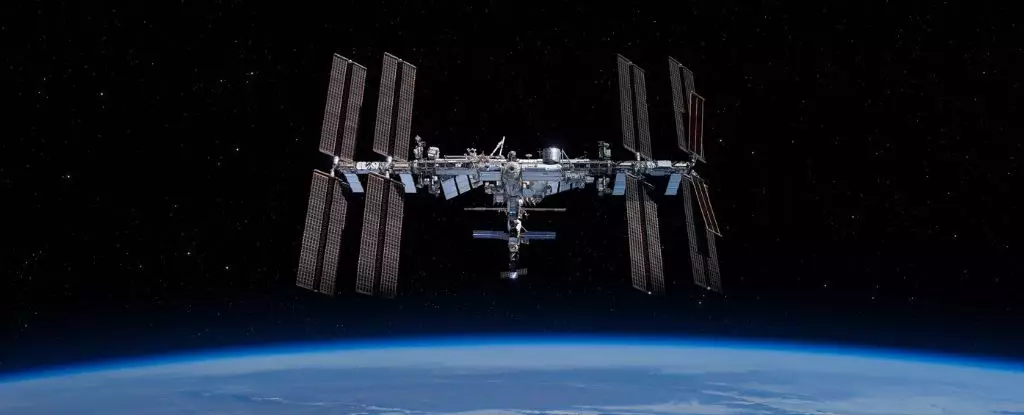This past weekend, an uncrewed Russian cargo spacecraft made headlines for reasons beyond its valuable cargo of supplies to the International Space Station (ISS). While astronauts anticipated receiving essential food, water, clothing, and scientific equipment, the arrival of the Progress cargo spacecraft unexpectedly introduced an inexplicable and unpleasant odor. As the hatch opened, the astronauts were met with an unusual aroma and small droplets floating in the finely regulated atmosphere of the ISS. In a situation where every aspect of the environment is meticulously controlled, this uninvited sensory disturbance raised immediate alarms.
In response to the extraordinary circumstance, precautions were promptly taken. Russian astronauts donned protective gear as the station’s air scrubbers activated to filter the air and eliminate the mysterious scent. This quick reaction illustrates the protocols that govern life aboard the ISS, where the safety and health of the crew take precedence. Despite the strange circumstances, officials reassured that the crew was not at risk, but the incident sparked discussions about the environment in confined spaces. The air quality sensors indicated that everything returned to normal conditions the day after the discovery, but the initial reaction showcased the gravity with which even minor issues are treated in space.
Life aboard the ISS is characterized by unique challenges, one of which is managing the various smells that can accumulate in such a confined space. Astronauts have previously described the station’s aroma as a peculiar blend of burnt food and unwashed clothes, a stark reminder of the absence of the fresh air that we so often take for granted on Earth. Each cargo mission undergoes rigorous assessments to ensure that supplies sent to space do not contribute to this olfactory assault. However, as the Progress incident highlights, even the most carefully screened items can emit unexpected scents due to the peculiarities of living in microgravity.
The alien environment of space introduces a phenomenon known as outgassing, which explains why certain materials may emit odors only when they are subjected to the unique conditions found in space. The vacuum and temperature variations can unleash trapped gases or water vapor, leading to unexpected smells. NASA officials pointed to outgassing as a potential cause of the distressing odor aboard the ISS, indicating the complexities faced when dealing with materials in an extraterrestrial setting. Outgassing not only affects smell but is also a concern for equipment and environmental integrity aboard the ISS. If gases accumulate, they can lead to corrosion, degrade sensitive instruments, and disrupt the mission’s vital functions.
The incident at the ISS serves as a reminder of the risks involved in space exploration, which has historical precedent. One particularly notable case involved the Apollo 8 mission, during which a silicon rubber seal released detrimental gases that temporarily impaired an observation window. Though the Progress incident seems less severe, the historical context underscores the importance of monitoring the environmental factors within space stations. Engineers and scientists meticulously work to mitigate the risks associated with materials in space, recognizing that a singular oversight can have cascading impacts.
As the mission for the Progress spacecraft continues, the unsettling aroma serves as a catalyst for further investigations into the materials used in space missions. The lingering scent raises questions regarding the docking mechanisms and the potential for future occurrences, pushing scientists to refine their methodologies in selecting materials sent to the ISS. This incident emphasizes how crucial it is for space agencies to remain vigilant and adapt in the face of unexpected challenges, ensuring that the safety and efficacy of human life in space remain paramount.
While astronauts aboard the ISS have faced a variety of challenges, the mystery of the recent odor serves as a reminder that even the most mundane aspects of life—like smell—take on new significance in space. As humanity reaches farther into the cosmos, addressing these challenges will be essential to the success of future missions.


Leave a Reply